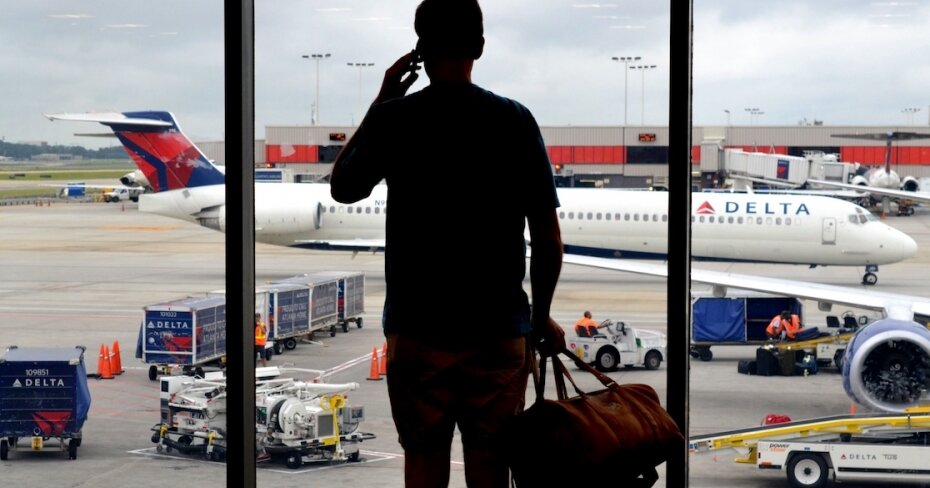How trip cancellation and interruption insurance work when it comes to COVID-19
By: Barry Choi on March 18, 2020
With COVID-19 (often referred to as the novel coronavirus) now a global pandemic, governments around the world are shutting down their borders and advising their citizens to return home. This has caused a considerable ripple effect as travellers scramble to get back while commercial flights are still available.
If you’re about to travel or you need to return early due to this crisis, you’ll want to know how your trip cancellation and trip interruption insurance on your credit cards work. Although it’s usually a straightforward process, this is a complicated time for airlines, hotels, insurance providers and everyone else in the tourism industry. They’re trying their best, and things are changing daily.
Do you have trip cancellation and interruption insurance with your credit card?
Before we get into the details of trip interruption and trip cancellation insurance, you first need to find out if your credit card offers it as a benefit. This information should be clearly stated under your credit card’s certificate of insurance. Understand that travel medical insurance is different than trip interruption and trip cancellation insurance.
Let’s assume your credit card comes with trip interruption and trip cancellation coverage. You now need to find out if you qualify for the insurance. Depending on your credit card, you might need to charge some of your trip costs (75% or even 100%) to your credit card that has the insurance in order for it to be valid.
For example, the Scotiabank Gold American Express certificate of insurance states that eligibility applies when “at least 75% of the full cost of the delayed flight ticket was charged to Your Account and/or paid with Scotia Rewards points.” That means if your flight was $1,000, you would need to have charged at least $750 to your card for your trip cancellation and trip interruption coverage to apply.
When can and can’t you make a claim?
Under normal circumstances, there are multiple reasons why you could make a trip cancellation or interruption insurance claim, but we’re going to focus on what’s possible due to COVID-19.
First things first. You can’t just make a cancellation or interruption claim because you’re afraid to travel because of the virus. There needs to be an official Canadian Government, Level 3 advisory that urges avoiding all non-essential travel to a country, region or city.
At the start of the outbreak, northern Italy was under a Level 3 advisory, but not the south, where Rome is located. So if you were headed to Milan or Venice at that time, your trip cancellation/interruption would apply, but not if you were just headed to Rome.
However, COVID-19 has spread rather rapidly in the last few weeks, so Canada has issued a global travel advisory that states, “Avoid non-essential travel outside of Canada until further notice.”
You can’t just make a cancellation or interruption claim because you’re afraid to travel because of the virus
Still, with this advisory in place, it shouldn’t matter which country you’re flying to, or which country you’re currently in — you should be able to make a claim. That said, if you’re looking to get a refund for a trip that’s happening in 2021, the insurance provider would likely deny your claim at this time. That’s because trip cancellation typically applies only to immediate travel, or travel that’s soon coming up.
It’s also important to note that the information around COVID-19 is changing almost hourly. When the global announcement first went out, some insurance providers were still not processing claims unless specific countries were named. It appears that all insurance providers are on the same page now, so if you’re looking to cancel a trip that’s taking place in March or April, you’ll probably have success.
Now that COVID-19 has gone global, some travel insurance providers won’t provide coverage for any upcoming trips. So, if you’re planning a trip for December and coronavirus is still a concern, you might not be covered if you need to make a claim related to the virus. Always read the details of your credit card’s certificate of insurance before purchasing your tickets. If you have any questions, call the insurance provider for clarification.
Making a trip cancellation insurance claim
Trip cancellation insurance applies when you need to make a claim before you go on your trip. When making a trip cancellation claim, you don’t instantly get a full refund. There’s a process to follow, and there’s typically a limit to how much you’ll be reimbursed. Using the Scotiabank Gold American Express as an example again, its policy states:
“The amount payable is subject to a maximum limit of $1,500 per Insured Person and $10,000 per Trip for all Insured Persons on the same Trip and will be limited to the cancellation penalties in effect on the date the covered cause for cancellation arises.”
Trip cancellation insurance applies when you need to make a claim before you go on your trip. Trip interruption insurance applies when you need to make a claim during your trip
With COVID-19, many airlines, tour operators and hotels are waiving change fees or offering full credits that can be used at a later date. Since you’re getting credit, your insurance provider likely wouldn’t give you a refund as that would allow you to double-dip. However, in most situations, if you were unable to use the credit, you could make a claim when it expires.
Basically, you need to go through the airline, hotel, tour operator, travel agent, etc. first to figure out what their refund policy is. If you booked direct, you’d probably have an easier time dealing with your refund/credit compared to people who booked through a third party.
Making a trip interruption insurance claim
Trip interruption insurance applies when you need to make a claim during your trip. Similar to trip cancellation insurance, you need a qualifying reason to make a claim. Again, COVID-19 counts. Generally speaking, trip interruption insurance has a higher payout compared to trip cancellation since you’ll probably have to make last-minute changes, such as booking flights home, which may cost you a premium.
Most of the time, trip interruption insurance will pay for the non-refundable unused portion of your prepaid travel arrangements, which would cover things such as hotels, tours, and even attractions tickets. The cost of unused prepaid transportation back to your departure point would not apply as you would be able to claim a new transportation ticket back home under your trip interruption insurance.
What that means is that you don’t necessarily have to wait for the next available flight on your original airline to get home. You could technically book any flight back and then make a claim later. Remember, there are limits, so it’s always a good idea to call your trip cancellation/interruption insurance provider for the details before you make any decisions.
What to do now
If your travel isn’t imminent, try to avoid calling your credit card company right now. Passengers who are abroad or who have imminent travel dates need to get a hold of customer service.
Some airlines, hotels and car rental companies have already made clear what their current cancellation and refund policies are. In most cases, you’re able to make those cancellations or changes directly online, so there’s no need to call in at all.
Finally, be patient. COVID-19 is something the world has never seen. The government and the tourism industry are trying to keep up. What happens now will shape travel — and how it’s insured — as we know it.


